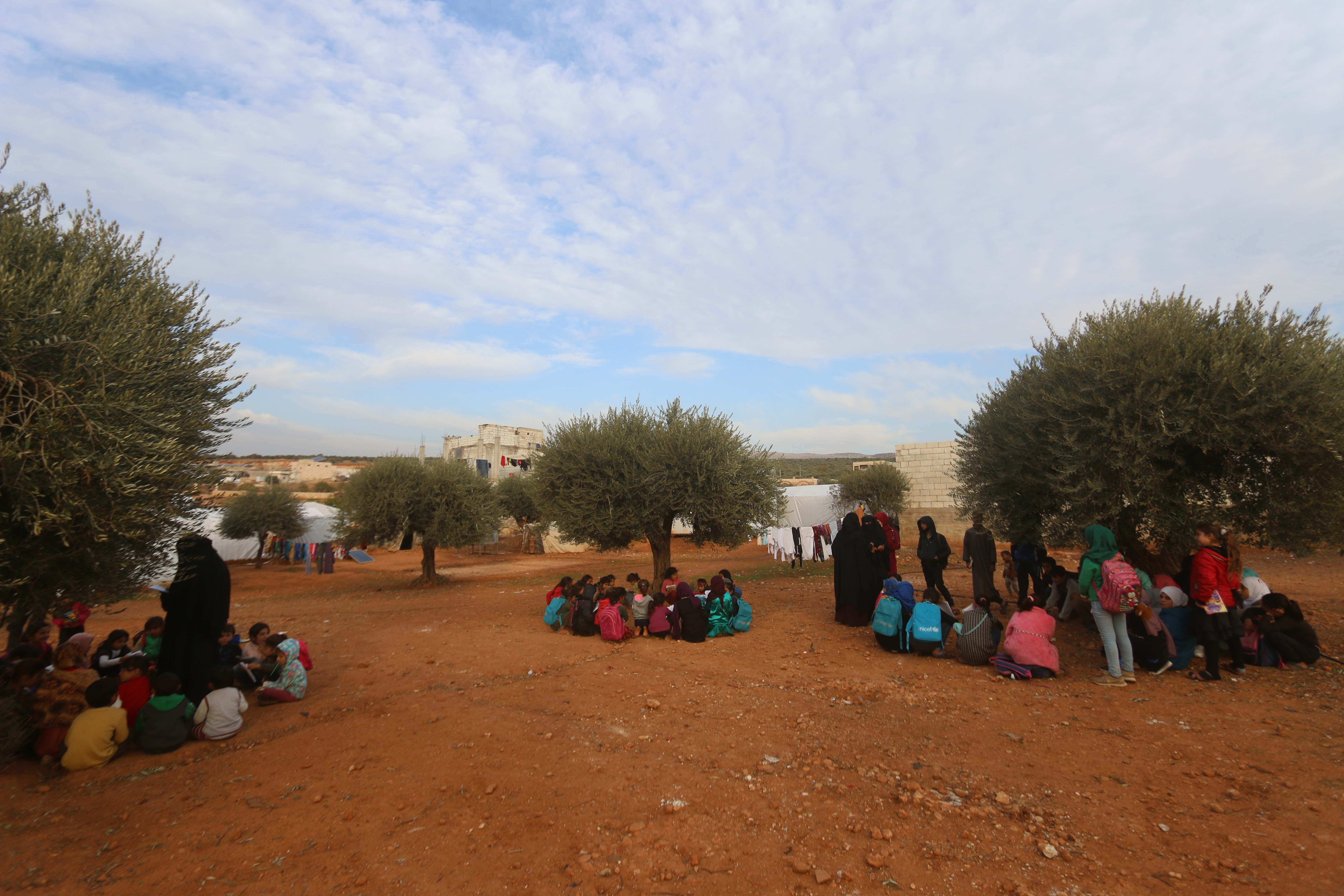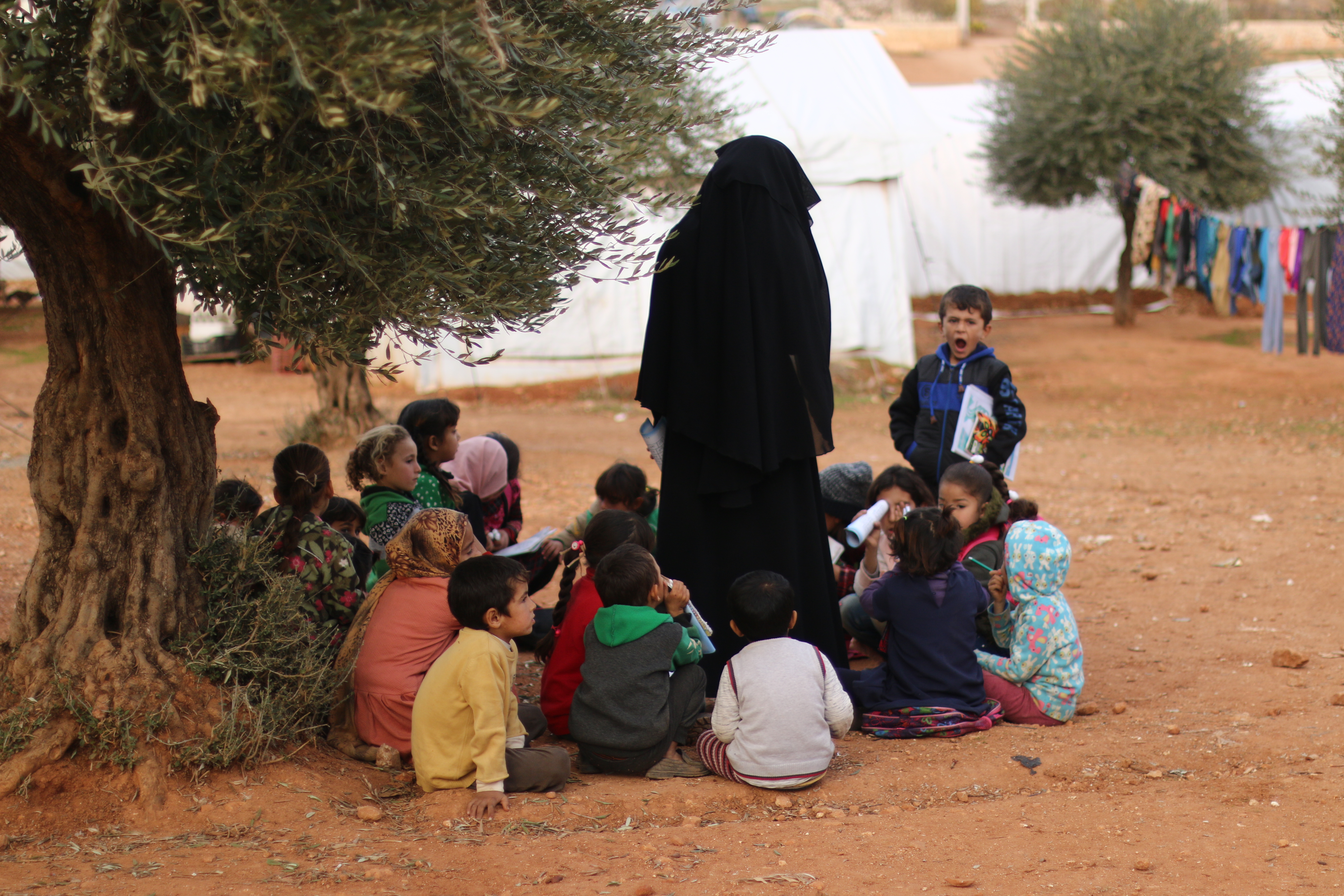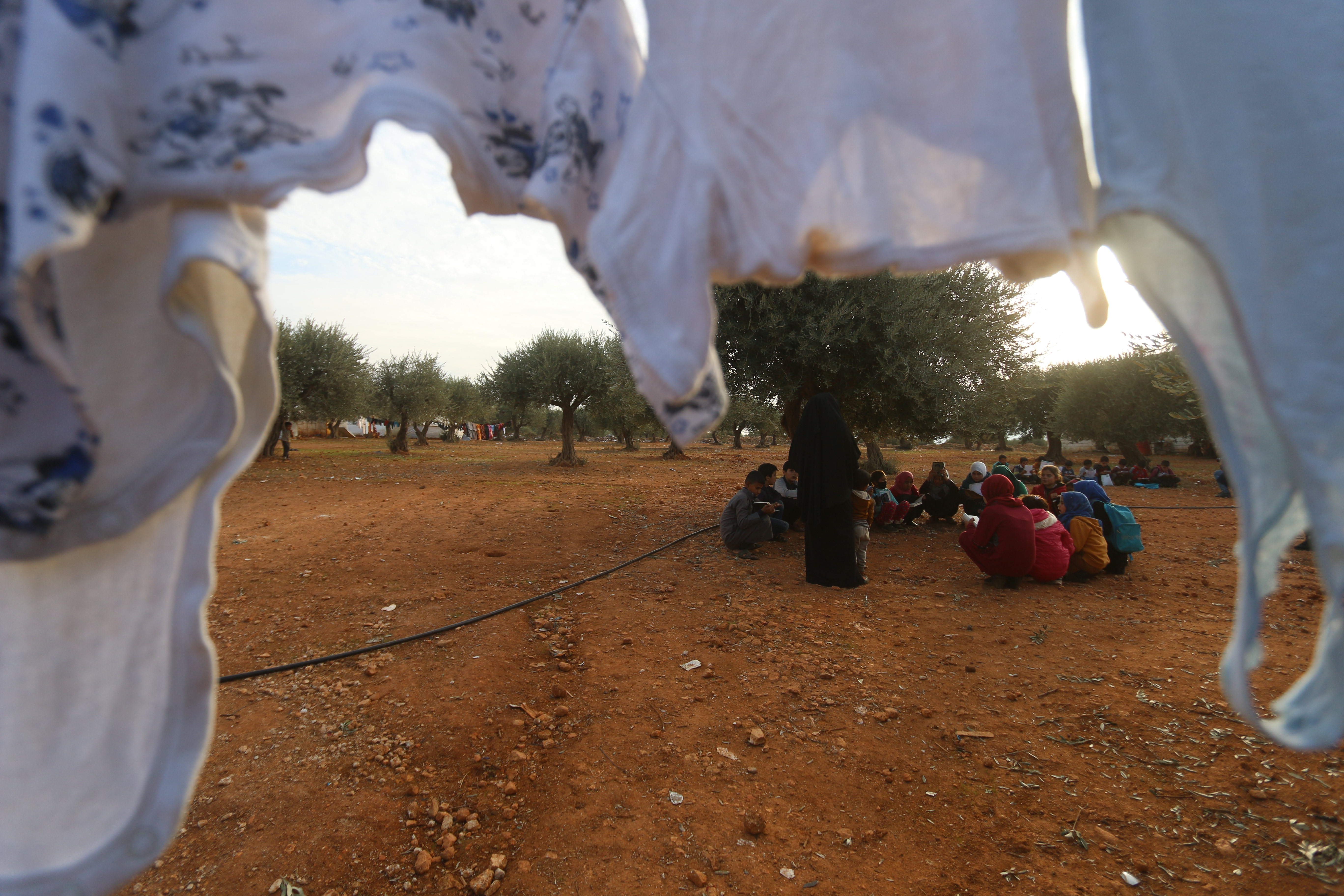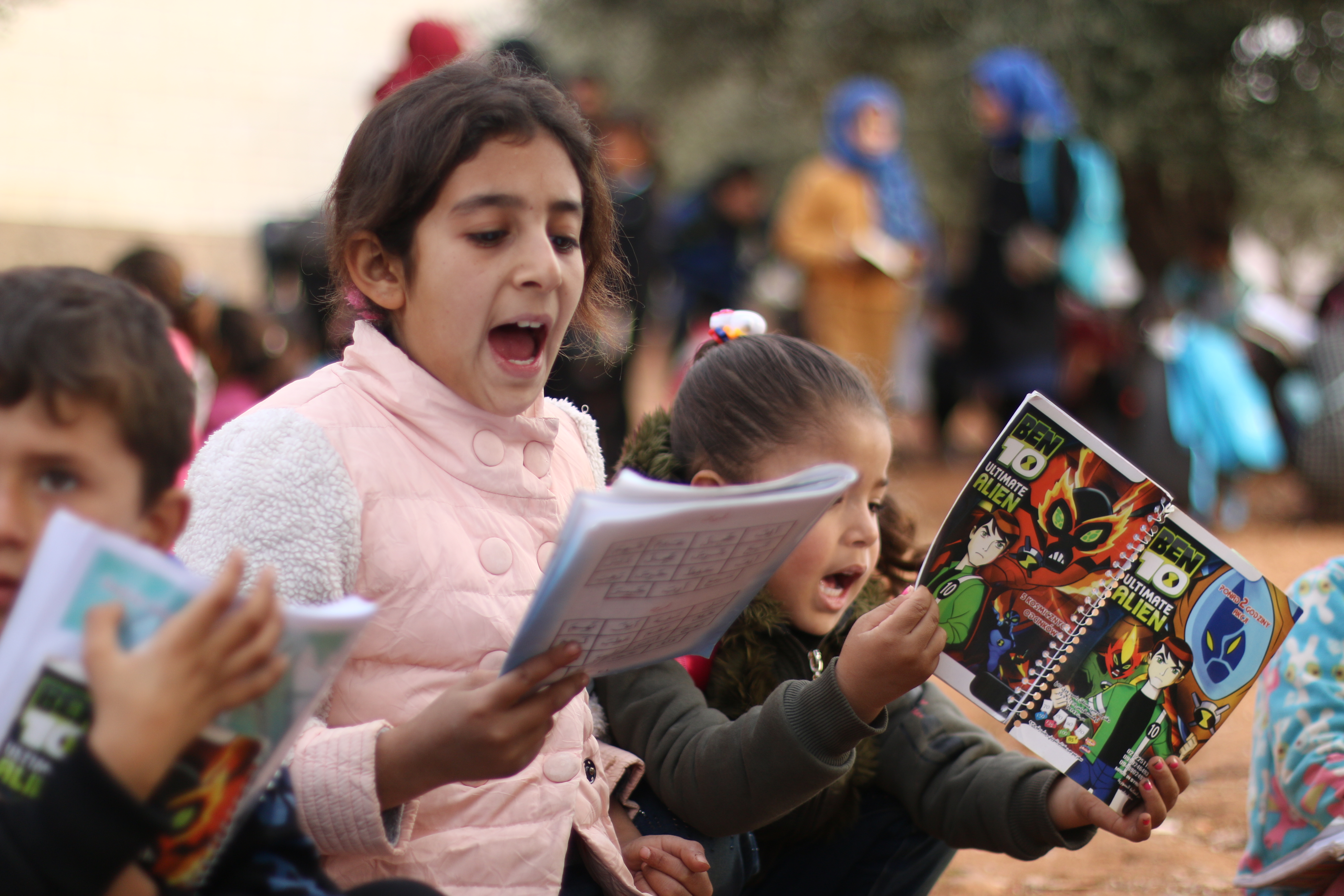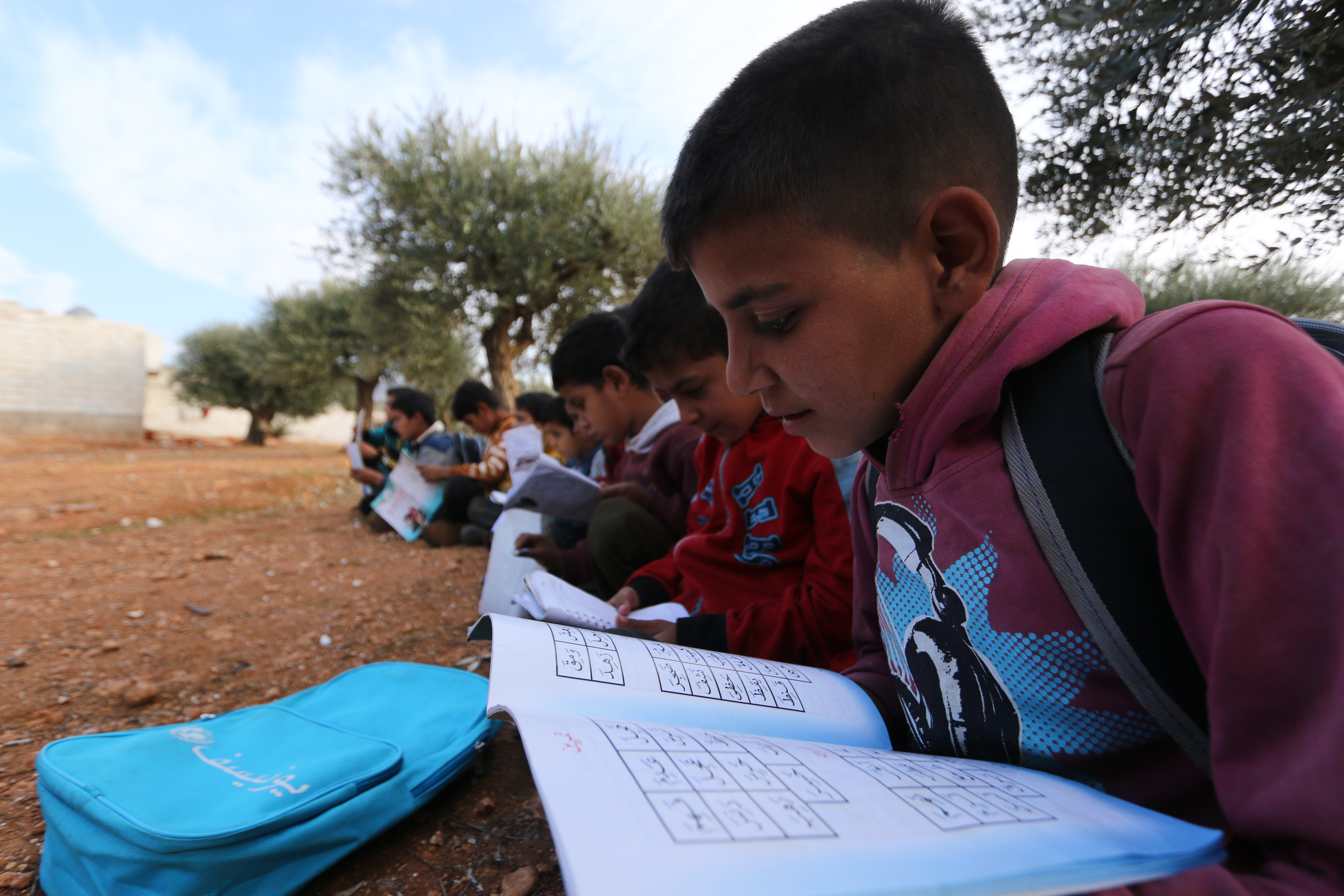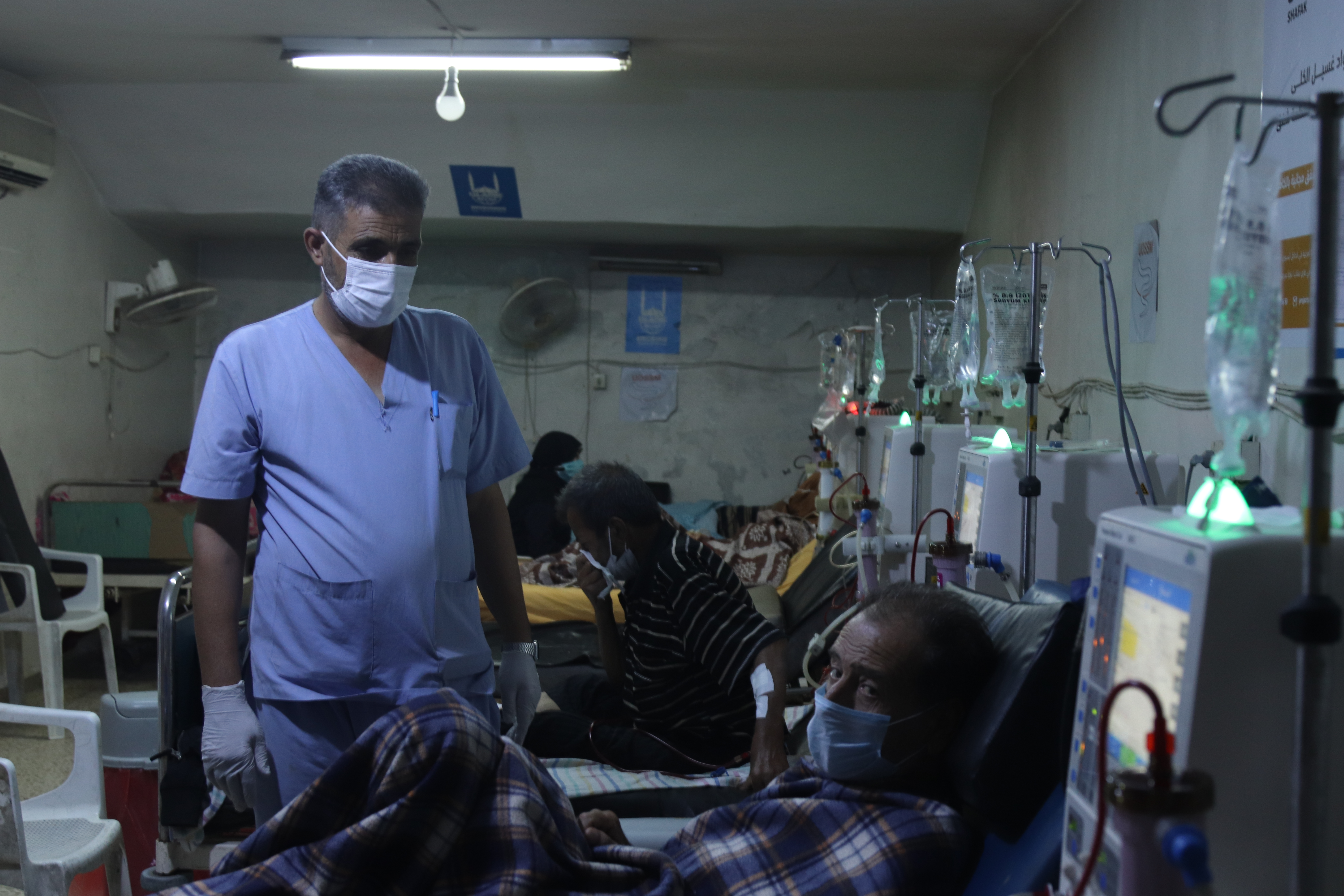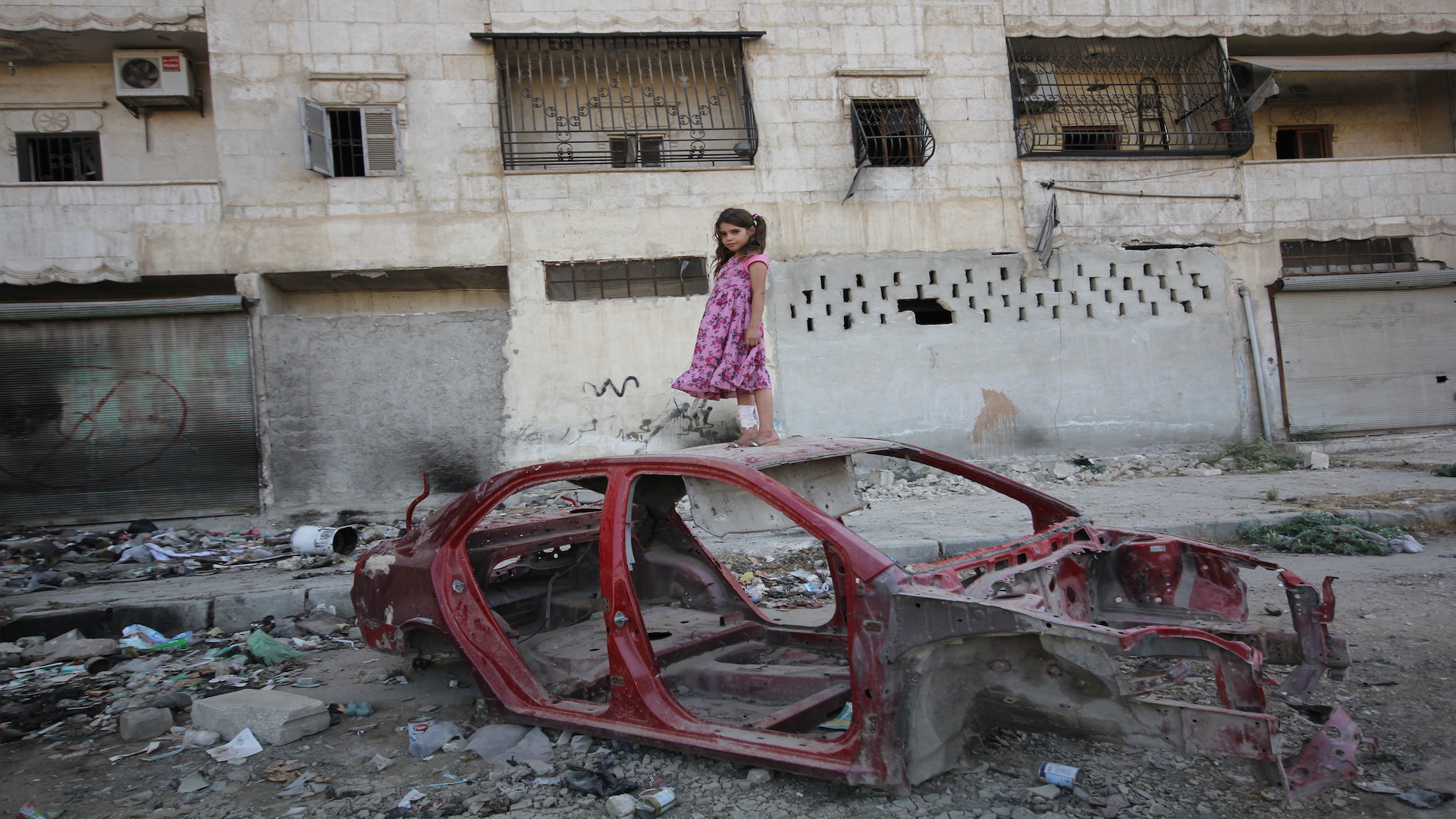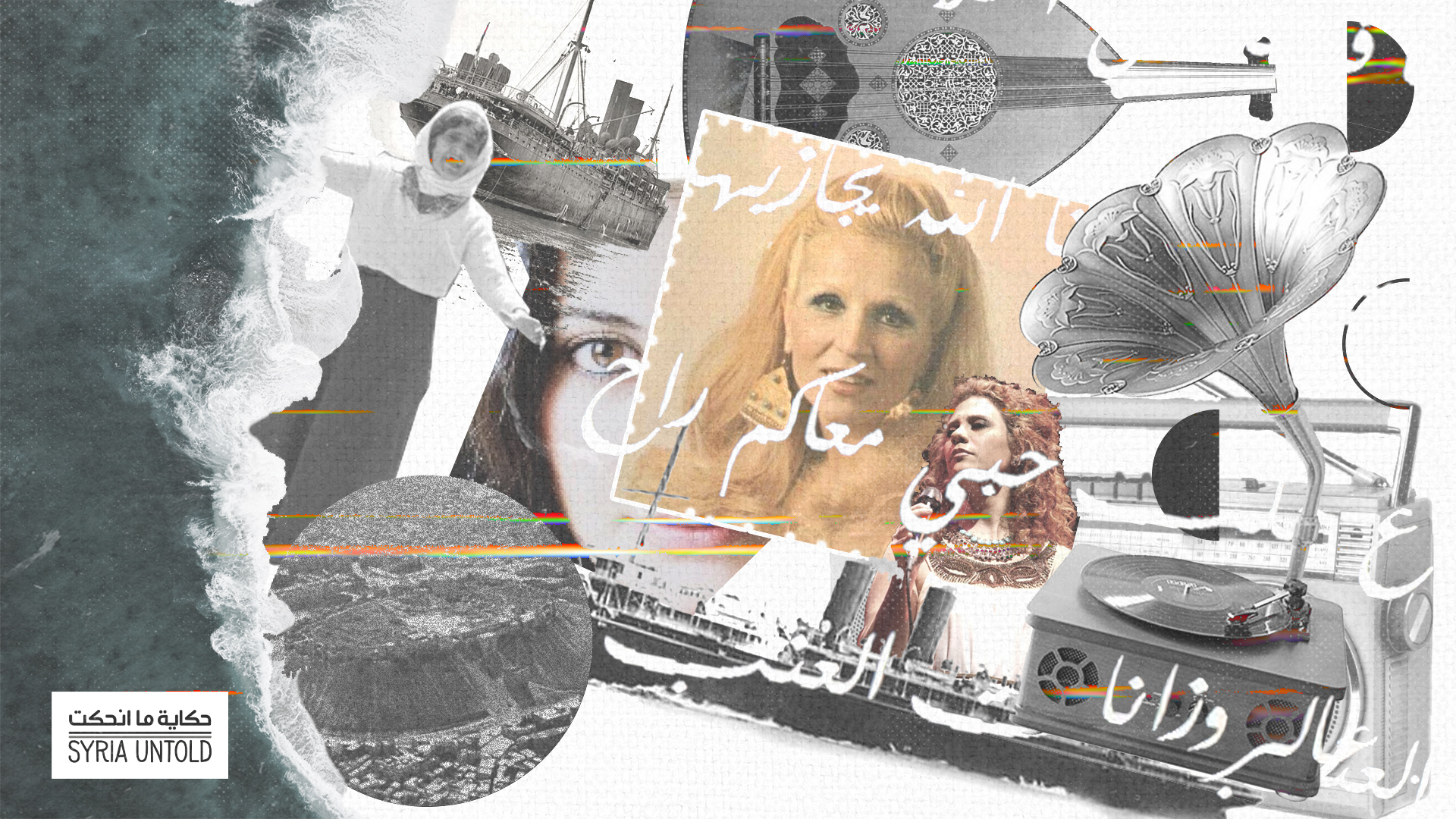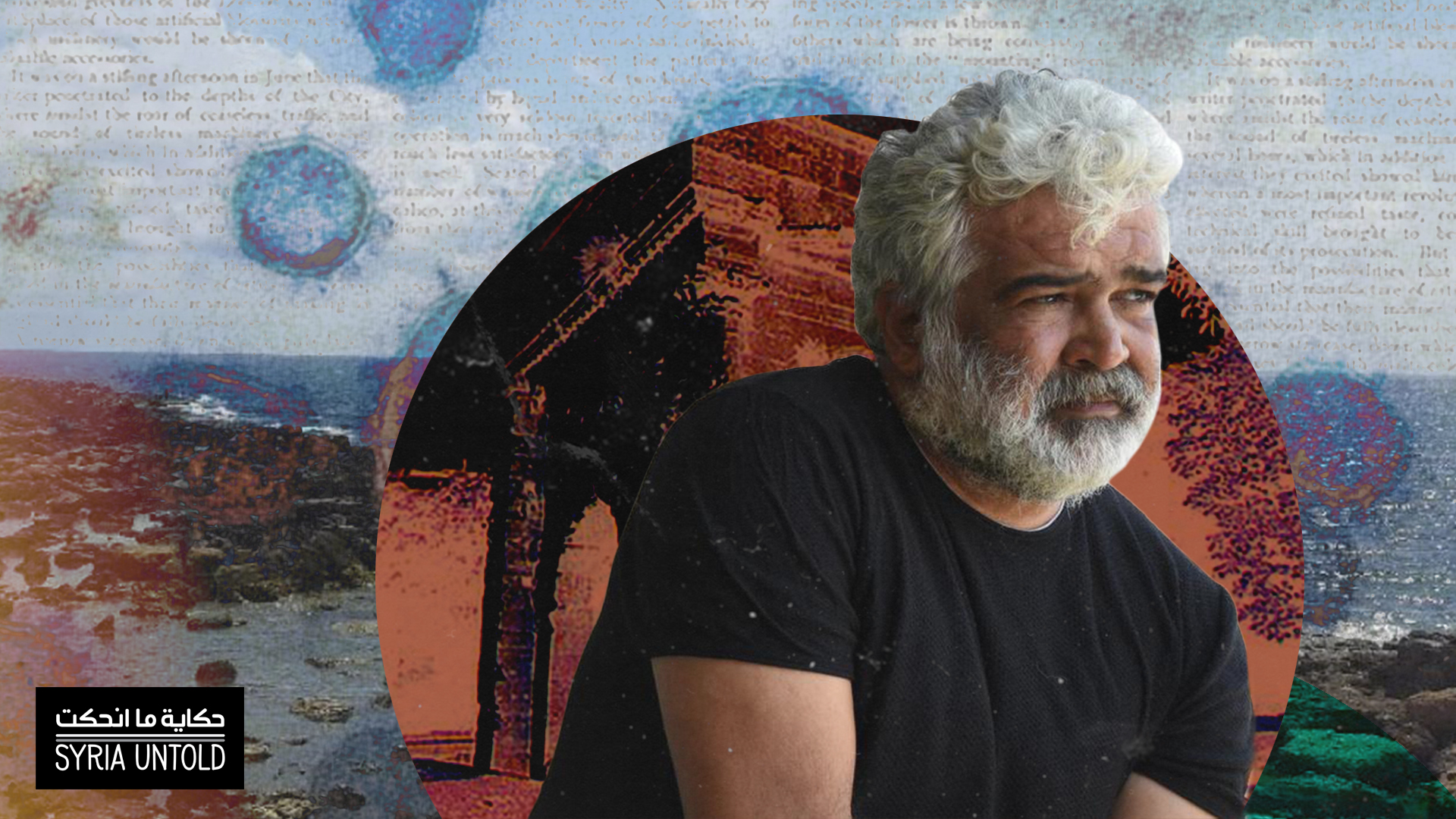Five volunteers gather one December day to teach Arabic lessons to children in the Zummar displacement camp. The camp is located in Syria’s northwestern Idlib governorate, near the town of Armanaz, and houses families displaced from nearby rural Aleppo governorate. Children in the camp remain unable to read and write adequately, parents say, amid displacement and a lack of nearby functioning schools.
Saba Zummar, a teacher by training, is one of the volunteers, after the camp director asked her and other former teachers to provide lessons for the children. “We started volunteering in the camp five months ago because the children have lost many years [of education]. We are doing whatever we can, despite limited means,” Saba says.
At least two dozen schools in Idlib have been damaged this year, targeted by Syrian and Russian airstrikes as part of a bombing campaign on opposition-held territory in the country's northwest, according to Save the Children, a UK-based charity. Other schools have since closed due to the COVID-19 pandemic. As a result, formal schooling is ever more inaccessible to thousands of children living in the displacement camps scattered across northern Idlib. Volunteers in the Zummar camp lack even a building to house classes. “In winter, when the weather is sunny or cloudy, we give lessons to the students. When it is raining, however, we can’t, because there aren’t any large tents or a school building to accommodate the 200 students,” says Saba.
Doaa, pictured below in the pink coat, is a nine-year-old girl from Zummar, a town in nearby Aleppo governorate that shares its name with the displacement camp where she now lives. Doaa is behind in her schooling because of the lack of available schools near the camp. “We are living under trees, in the rain,” she says. “We’ll get drenched if we go to the schools, which are in villages far from here. And even if we can go there in a car, we have to come back [to the camp] by foot, in the rain and mud.” Doaa hopes to someday attend “a large school, with a whiteboard, seats, notebooks and pencils.”
Some 200 students living in the camp take part in the lessons, learning basic Arabic reading and writing skills. However, says Saba, the volunteer teacher, “there are few books and notebooks, as we receive no support. We do try to give out some books, which we buy with our own money.”
Abu Hassan is a displaced father living in the Zummar camp. His three children receive lessons from the volunteer teachers. “I cannot provide school supplies for my children because I don’t have a monthly income,” Abu Hassan says. “I dream of my children studying like all other children in the world, in schools that shelter them from the summer heat and winter cold.” He is unable to take his children to the closest school in the town of Armanaz, due to the distance and his lack of funds to pay for transportation.


